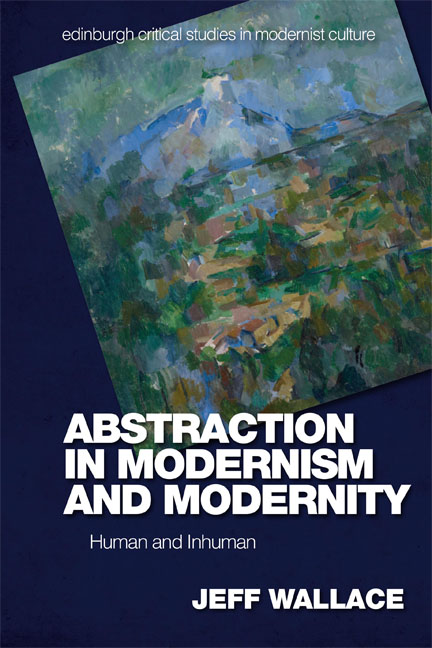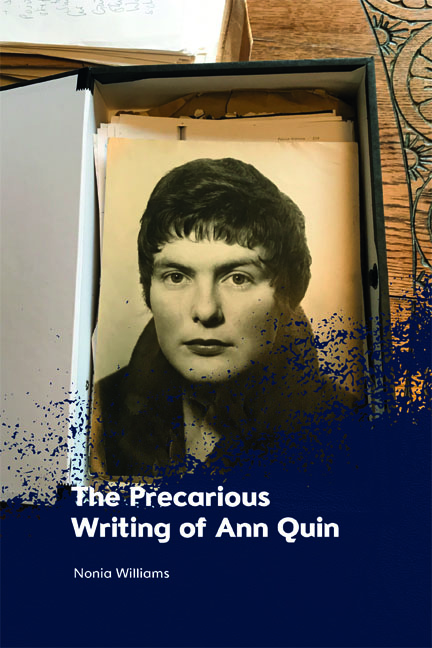Refine listing
Actions for selected content:
28471 results in Edinburgh University Press

James Boswell, The Journals in Scotland, England and Ireland, 1766-1769
-
- Published by:
- Edinburgh University Press
- Published online:
- 11 March 2025
- Print publication:
- 31 May 2023

The Edinburgh History of Scottish Newspapers, 1850-1950
-
- Published by:
- Edinburgh University Press
- Published online:
- 08 March 2025
- Print publication:
- 30 April 2023

Turkish-Greek Relations
- Foreign Policy in a Securitisation Framework
-
- Published by:
- Edinburgh University Press
- Published online:
- 08 March 2025
- Print publication:
- 01 June 2023

Race, Nation and Cultural Power in Film Adaptation
-
- Published by:
- Edinburgh University Press
- Published online:
- 08 March 2025
- Print publication:
- 11 April 2023

The Edinburgh Companion to Globalgothic
-
- Published by:
- Edinburgh University Press
- Published online:
- 08 March 2025
- Print publication:
- 31 July 2023

Abstraction in Modernism and Modernity
- Human and Inhuman
-
- Published by:
- Edinburgh University Press
- Published online:
- 08 March 2025
- Print publication:
- 30 April 2023

Generic Innovation in Shakespeare and His Contemporaries
-
- Published by:
- Edinburgh University Press
- Published online:
- 08 March 2025
- Print publication:
- 01 September 2023

Contemporary Screen Ethics
- Absences, Identities, Belonging, Looking Anew
-
- Published by:
- Edinburgh University Press
- Published online:
- 08 March 2025
- Print publication:
- 02 June 2023

Hadith Commentary
- Continuity and Change
-
- Published by:
- Edinburgh University Press
- Published online:
- 08 March 2025
- Print publication:
- 31 May 2023

Affirmation and Resistance in Spinoza
- The Strategy of the Conatus
-
- Published by:
- Edinburgh University Press
- Published online:
- 08 March 2025
- Print publication:
- 30 September 2023

Beyond the Enlightenment
- Scottish Intellectual Life, 1790-1914
-
- Published by:
- Edinburgh University Press
- Published online:
- 08 March 2025
- Print publication:
- 01 May 2023

Gooey Media
- Screen Entertainment and the Graphic User Interface
-
- Published by:
- Edinburgh University Press
- Published online:
- 08 March 2025
- Print publication:
- 31 July 2023

Conversion Machines
- Apparatus, Artifice, Body
-
- Published by:
- Edinburgh University Press
- Published online:
- 08 March 2025
- Print publication:
- 30 June 2023

The Precarious Writing of Ann Quin
-
- Published by:
- Edinburgh University Press
- Published online:
- 08 March 2025
- Print publication:
- 31 July 2023

Women's Activism in the Transatlantic Consumers' Leagues, 1885-1920
-
- Published by:
- Edinburgh University Press
- Published online:
- 08 March 2025
- Print publication:
- 01 November 2023

Exoteric Modernisms
- Progressive Era Realism and the Aesthetics of Everyday Life
-
- Published by:
- Edinburgh University Press
- Published online:
- 08 March 2025
- Print publication:
- 30 September 2023

Anna Kavan
- Mid-Century Experimental Fiction
-
- Published by:
- Edinburgh University Press
- Published online:
- 08 March 2025
- Print publication:
- 30 June 2023

Christianity in North America
-
- Published by:
- Edinburgh University Press
- Published online:
- 07 March 2025
- Print publication:
- 31 July 2023

Spinoza's Paradoxical Conservatism
-
- Published by:
- Edinburgh University Press
- Published online:
- 07 March 2025
- Print publication:
- 01 May 2023

The Art of Iran in the Twentieth and Twenty-first Centuries
- Tracing the Modern and the Contemporary
-
- Published by:
- Edinburgh University Press
- Published online:
- 07 March 2025
- Print publication:
- 01 May 2023
